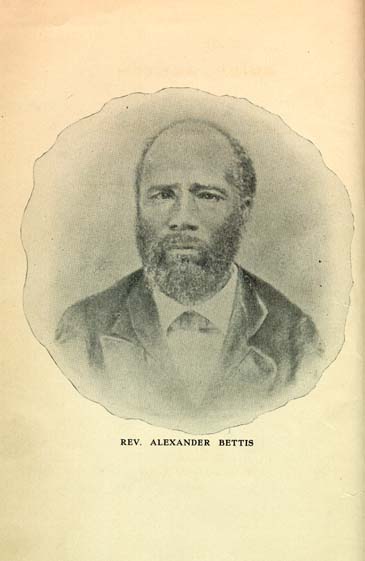Seeing that educational opportunities availed to African-Americans was scant, former slave Rev. Alexander Bettis established Bettis Academy and opened its doors on January 1, 1882 to the public.
Bettis had purchased 27 acres of land, at $3 an acre, on July 4, 1881, on which he erected a one-room frame building with its primary focus of giving spiritual and industrial training to Negro youth.
A unique invention was that, the school had a “commodity card” stipulating the kinds and amounts of farm-raised produce parents could bring to the school in lieu of cash for board. This afforded the opportunity for many students whose parents were poor to attend the Academy.
Bettis, a Baptist minister, served as the school’s president until his death in 1895. In 1933, the Academy was accredited as a junior college. When Bettis Academy and Junior College closed in 1952, the campus contained 14 major buildings on 350 acres.

These days, the college serves as a national monument located near Trenton, Edgefield County, South Carolina. “The complex now consists of three contributing buildings and one contributing site, all dating from the last 20 years of the institution. The remaining buildings are the rock-faced Alexander Bettis Community Library (1939); a bungalow-form building with a dual-pitched pyramidal roof; the stuccoed brick Classroom Building (1935); and the rock-faced Colonial Revival style Biddle Hall (1942).”
The campus is also the site of an annual event – “March for Parks-Earth Day Expo” – which raises awareness and funds for America’s national, state, and local public parks.
The Academy is listed on the National Register of Historic Places.










